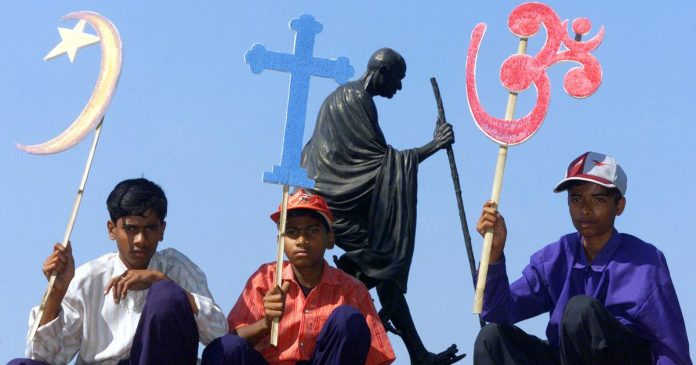– Radiance Bureau
Rajendran Narayanan, a scholar and educator at Azim Premji University in Bengaluru, reflects on his personal experiences and societal observations through the lens of a poignant narrative. Growing up in a devout Hindu household in Kolkata adorned with images of gods, Narayanan recounts a childhood immersed in tradition and spiritual devotion. The atmosphere of daily prayers and incense-laden rituals provided a rich backdrop for his formative years.
In the aftermath of the Babri Masjid demolition in Ayodhya, Narayanan’s family, like many others, grappled with the repercussions of religious discord. His father, a man of integrity working at Allahabad Bank, was deeply troubled by the act of desecration, lamenting the contradiction of violence perpetrated in the name of Lord Ram.
Amidst this backdrop, Narayanan encountered Farhan, a fellow student from a Muslim background, during a time of escalating communal tensions. Their friendship blossomed over shared interests, including cricket and literature, highlighting the universality of human connections beyond religious divides.
Tragically, years later, Narayanan learned of Farhan’s untimely demise, a victim of societal prejudice and intolerance. Farhan’s marriage to a Hindu woman under the Special Marriage Act provoked violent opposition from her influential father, ultimately leading to his tragic end.
The aftermath of Farhan’s death galvanized public outcry for justice, revealing systemic flaws and political maneuverings that hindered communal harmony and reform. Narayanan’s introspection underscores the erosion of traditional customs amidst a landscape marred by violence and discrimination.
In today’s India, Narayanan reflects on the disheartening silence of political parties amid rising religious tensions and persecution of minority communities. He calls for a renewed commitment to justice and compassion, invoking Farhan’s legacy as a catalyst for societal change and inclusivity.
Through Narayanan’s narrative, we witness the intersection of personal experiences with broader societal challenges, urging us to confront issues of identity, ideology, and communal harmony in pursuit of a more equitable and compassionate society.
[Rajendran Narayanan, teaches at Azim Premji University, Bengaluru, and is associated with LibTech India. The original name and identifying details have been altered to protect privacy. Source: Scroll]




